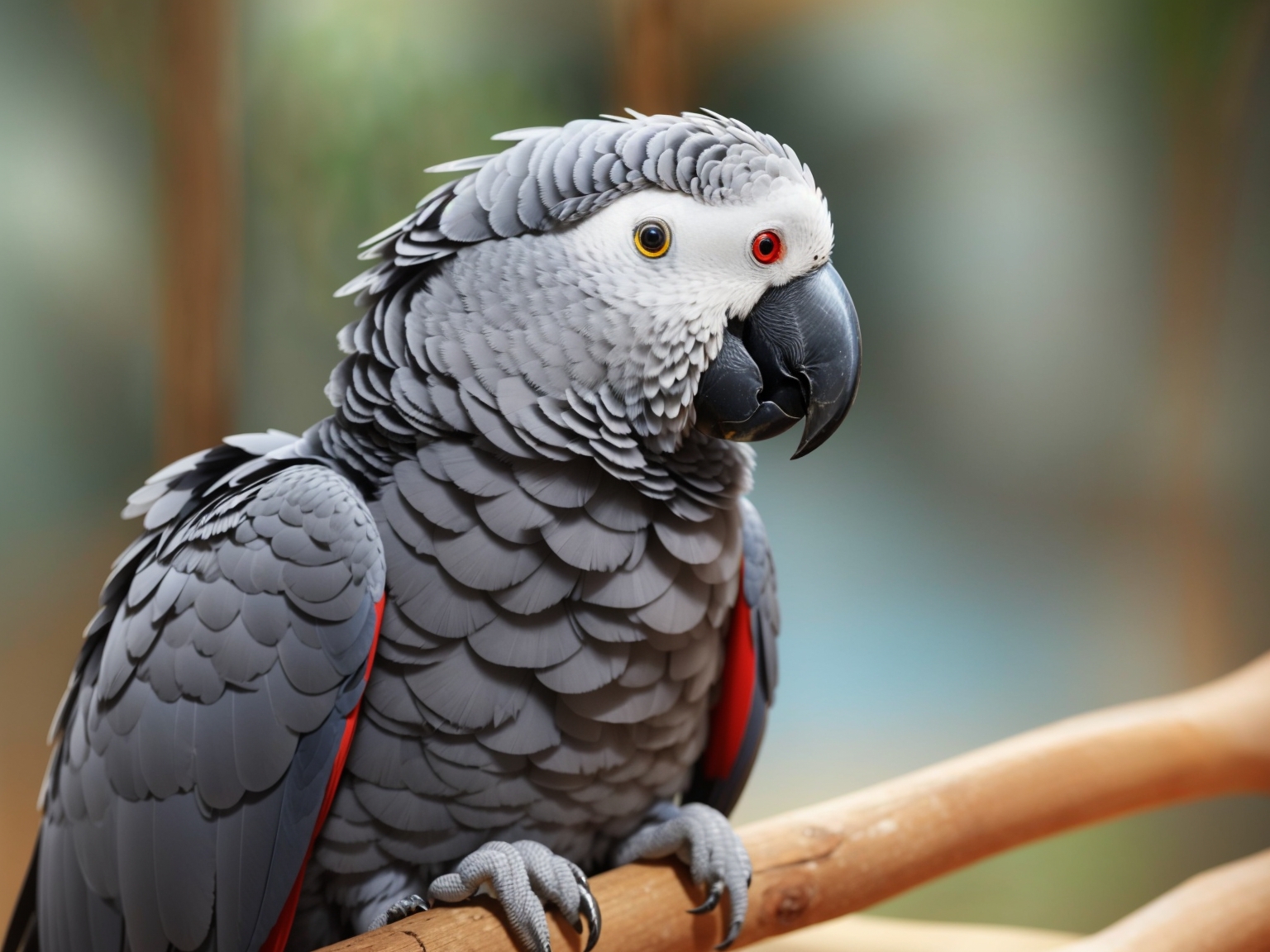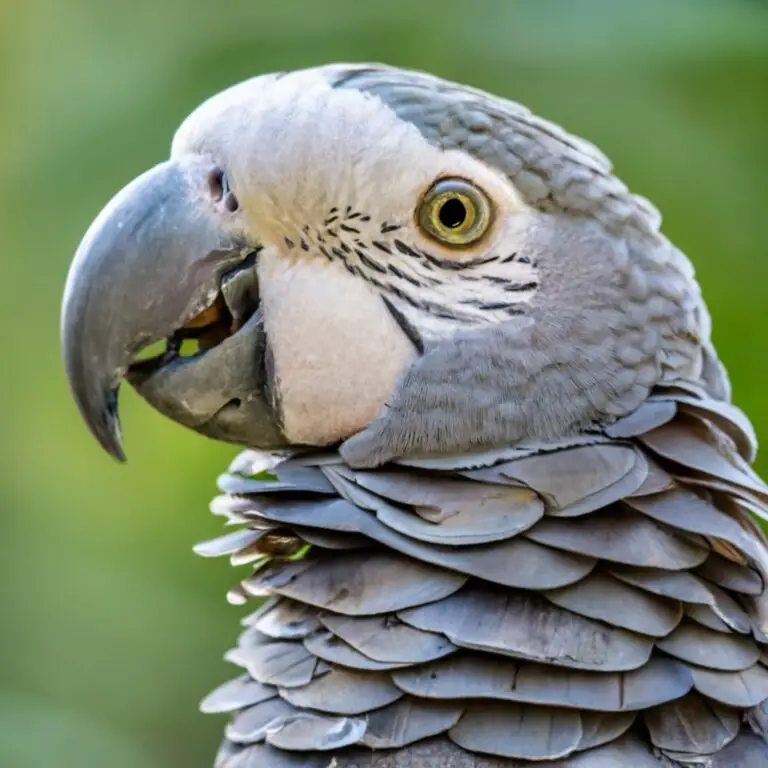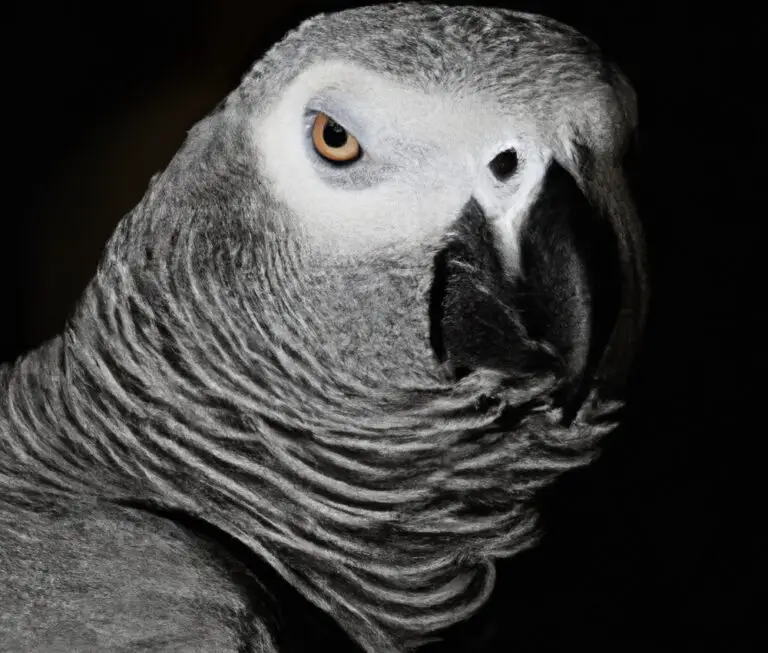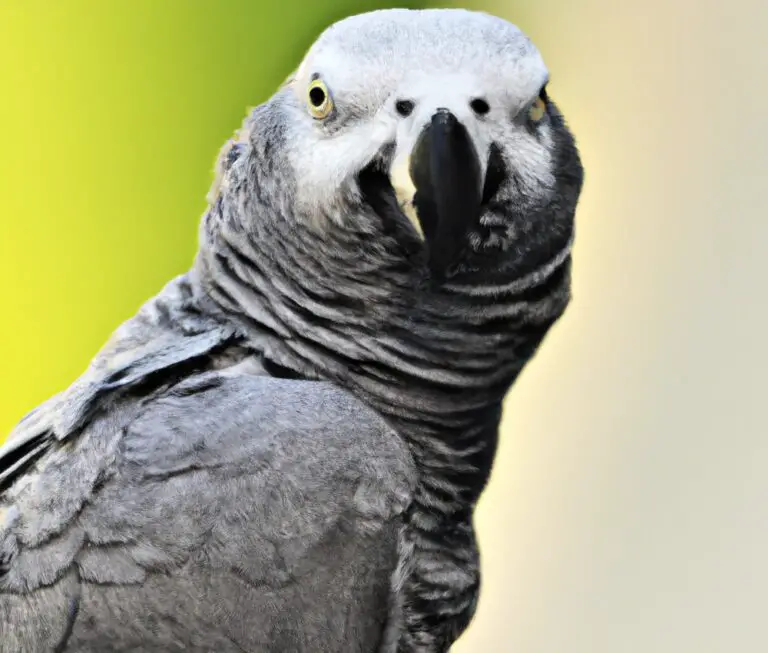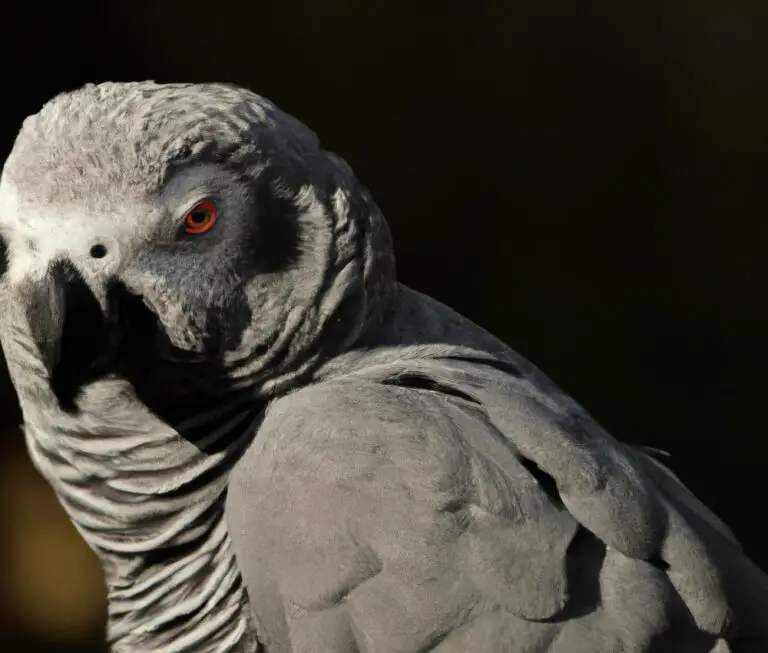Are African Grey Parrots Noisy?
Key Takeaways:
- African grey parrots can be noisy and have the ability to mimic various sounds and vocalizations.
- They are capable of creating loud and persistent calls, particularly during certain times of the day.
- African grey parrots need mental stimulation and attention to prevent excessive noise-making behavior.
- Training, socialization, and a well-designed environment can help manage and minimize noise levels.
Imagine having a pet that not only adds beauty to your home but also captures your heart with its intelligence and captivating communication skills.
That’s exactly what African grey parrots bring to the table.
These magnificent creatures have become increasingly popular as pets, but one burning question remains: Are African grey parrots noisy?
Well, the answer might surprise you! In this article, we’ll delve into the fascinating world of African grey parrots, exploring their physical characteristics, behavioral traits, vocalizations, and factors that affect noise levels.
Plus, we’ll share valuable tips on managing and reducing noise while living harmoniously with these delightful feathered companions.
Get ready to unlock the secrets of these extraordinary winged companions!
| Noisy | Quiet | |
| Are African grey parrots noisy? | Yes | No |
Understanding African Grey Parrots
African Grey Parrots are fascinating creatures with unique characteristics and behaviors.
Let’s dive into understanding them better.
Physical Characteristics of African Grey Parrots
African Grey Parrots have a medium-sized body with a short, square-shaped tail. They have striking gray feathers with a white mask around their eyes.
Their beaks are hooked and can be either black or gray.
These parrots have bright red tail feathers and their legs are dark gray. They have strong, agile feet with two toes facing forward and two toes facing backward, allowing them to grip onto branches.
Male and female African Grey Parrots have similar physical characteristics.
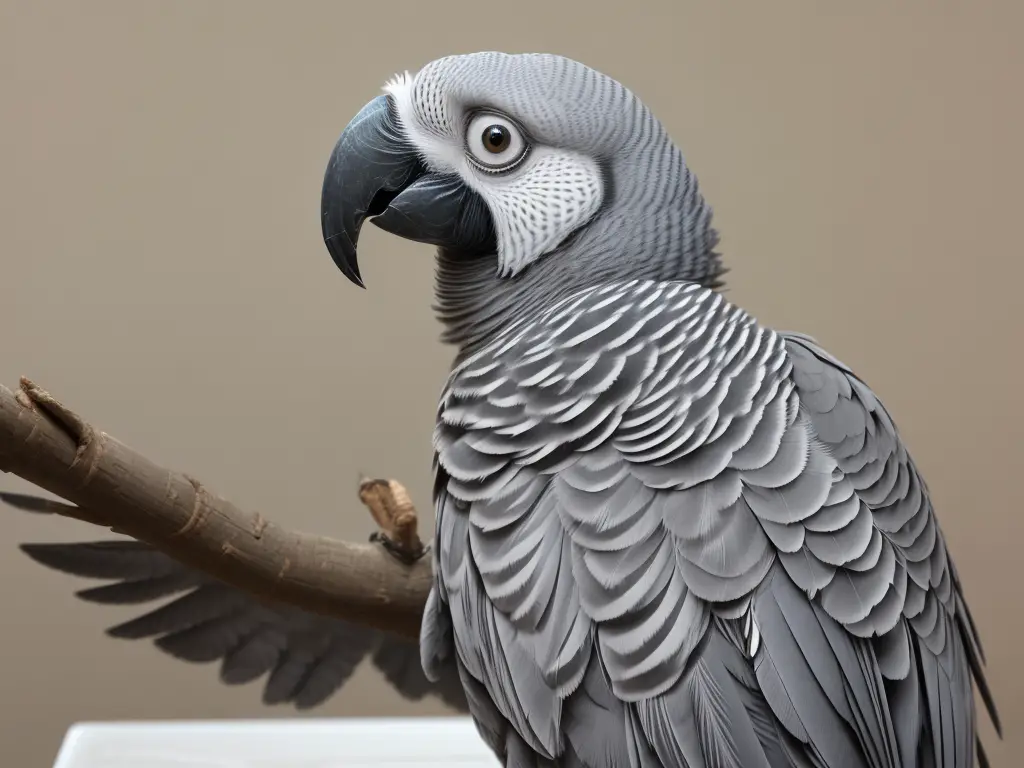
Natural Habitat of African Grey Parrots
African Grey Parrots are native to the dense rainforests of West and Central Africa. They are found in countries like Ghana, Ivory Coast, Cameroon, and Congo.
These parrots inhabit the canopy layer of the forests, where they live in small flocks and feed on fruits, seeds, nuts, and vegetation.
They are adapted to the humid and warm climate of their natural habitat.
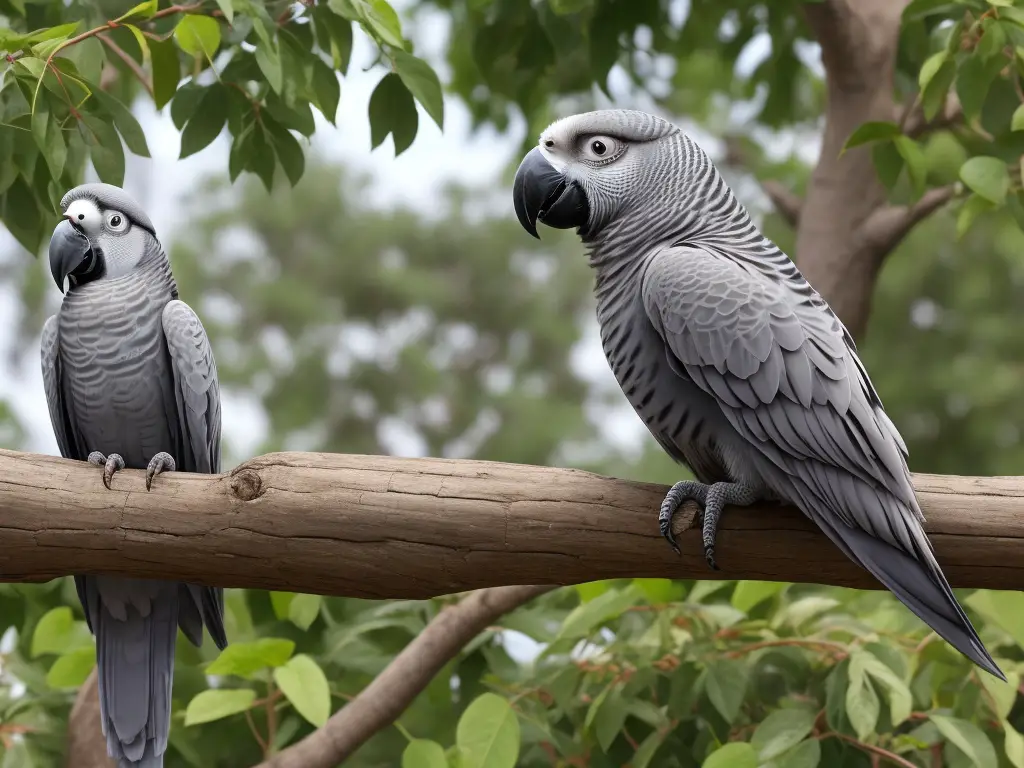
Lifespan of African Grey Parrots
The lifespan of African Grey Parrots is quite impressive.
On average, they live for 40 to 60 years in captivity, but some have been known to live for even longer.
Providing proper care and meeting their needs can help ensure they live a long and healthy life.
Behavioral Traits of African Grey Parrots
African grey parrots have unique behavioral traits that make them fascinating pets to have.
Intelligence of African Grey Parrots
African Grey Parrots are known for their exceptional intelligence.
They have the ability to understand and mimic human speech, and can even learn to associate words with specific meanings.
These parrots possess problem-solving skills and have been observed using tools in the wild.
With proper training and socialization, they can become highly intelligent companions.
Communication Skills of African Grey Parrots
African Grey Parrots have exceptional communication skills.
They can mimic human speech with remarkable accuracy, often sounding just like their owners.
They can also learn to associate words with their meanings and use them appropriately.
These parrots can also communicate through body language, vocalizations, and even by using their eyes to express emotions.
Their ability to communicate makes them highly engaging and entertaining pets.
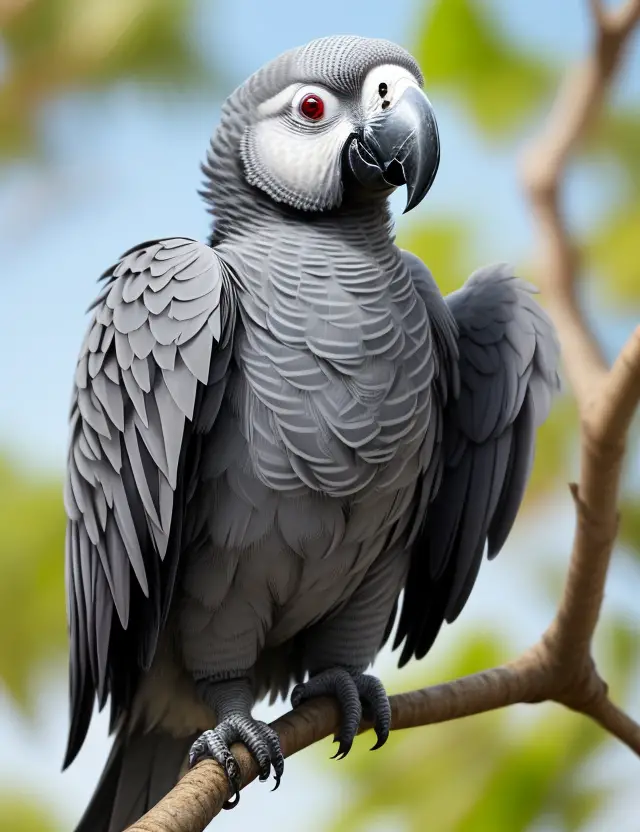
Social Behavior of African Grey Parrots
African Grey Parrots are highly social birds and thrive on interaction and companionship.
They form strong bonds with their owners and require regular socialization to maintain their mental and emotional well-being.
They enjoy being part of the family and appreciate being included in daily activities.
It’s important to provide them with plenty of opportunities for social interaction, such as playtime and training sessions.
Additionally, African Grey Parrots can benefit from having a companion bird, as they enjoy the company of their own kind.
Vocalization in African Grey Parrots
African Grey Parrots are known for their extensive vocal abilities.
Natural Vocalizations of African Grey Parrots
African Grey Parrots are known for their impressive vocal abilities. They have a wide range of natural vocalizations, including whistling, chirping, squawking, and mimicry of other sounds in their environment.
They can imitate human speech and even learn to speak in sentences.
Their vocalizations serve various purposes, such as communication, bonding, and expressing their emotions. It’s important to understand that their vocalizations are a natural part of their behavior and should be appreciated and managed accordingly.
Mimicry and Human Speech in African Grey Parrots
African Grey Parrots are known for their exceptional ability to mimic and imitate human speech.
They have a remarkable talent for accurately reproducing a wide range of sounds, words, phrases, and even voices.
This mimicry is a natural behavior for them and is driven by their high intelligence and social nature.
By providing them with proper training, socialization, and interaction, you can encourage their mimicry and enhance their ability to communicate with you and other humans.
Vocalization Frequency and Variations
African Grey Parrots are known for their vocalization skills.
They have a high vocalization frequency and can produce a wide range of sounds.
Their natural vocalizations include squawking, whistling, and chattering.
They are also highly skilled mimics and can imitate human speech with great clarity and accuracy.
The frequency and variations of their vocalizations can vary depending on factors such as age, environment, and social interactions.
It’s important to understand and manage these vocalizations to ensure a peaceful living environment.
Factors Affecting Noise Levels in African Grey Parrots
The noise level of African Grey Parrots can be influenced by their age, environment and enclosure setup, as well as their level of interaction and stimulation.
Age of the African Grey Parrot
African Grey Parrots have a long lifespan, often living for 40 to 60 years or even more.
These birds can live for several decades if provided with proper care, diet, and a stimulating environment.
It’s important to consider their age when understanding their behavior and noise levels.
Environment and Enclosure Setup
The environment and enclosure setup for African Grey Parrots is important for their comfort and well-being. Provide a spacious cage that allows them to move and stretch their wings.
Include perches of different sizes and textures.
Offer toys and enrichment activities to keep them mentally stimulated. Ensure the cage is located in a quiet area away from excessive noise and drafts.
Regularly clean the cage to maintain a healthy and hygienic environment for your parrot.
Interaction and Stimulation
Interaction and stimulation are crucial aspects of caring for African Grey Parrots.
These intelligent birds require social interaction with their human companions to thrive.
Regular playtime, talking to them, and providing toys and puzzles can help keep them mentally stimulated and prevent behavioral issues.
Offering a variety of activities and challenges is essential for their well-being.
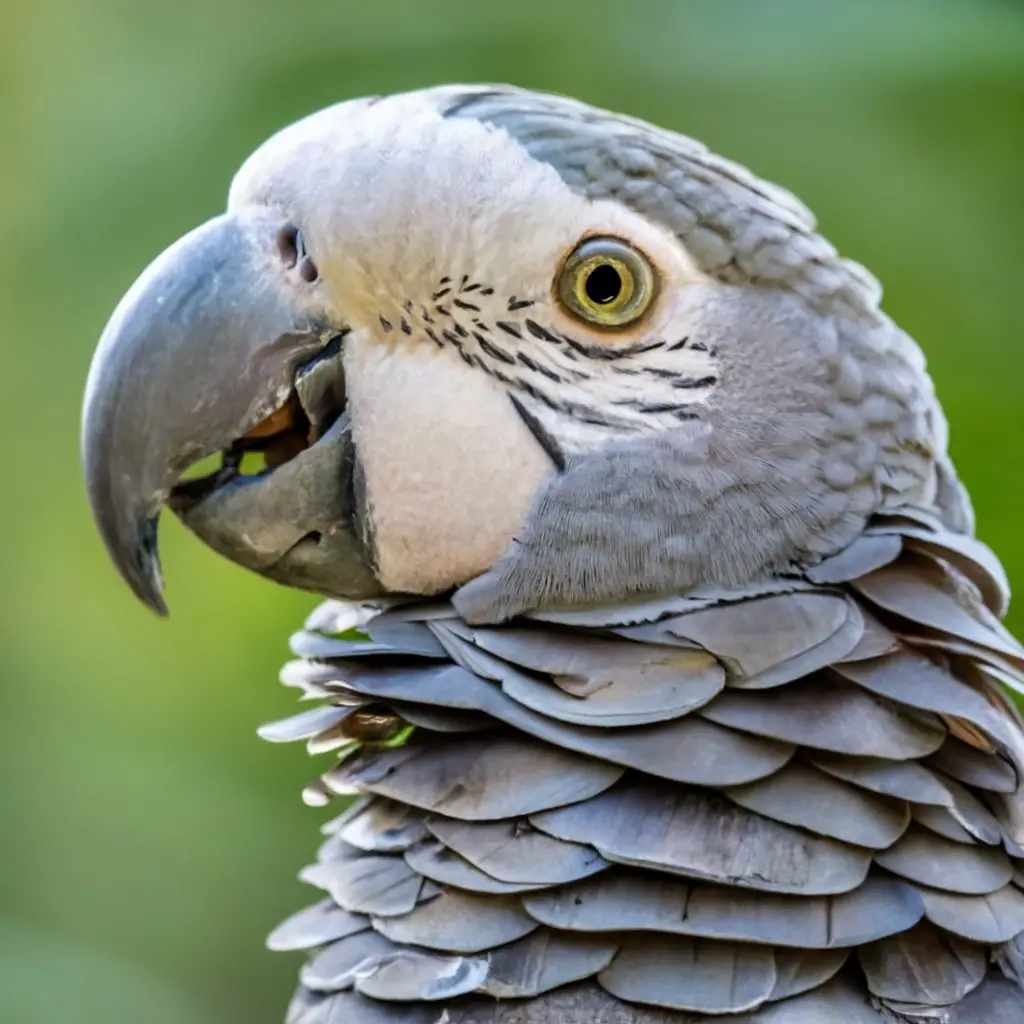
Noise Level of African Grey Parrots
African Grey Parrots can be quite noisy, producing a wide range of vocalizations.
Decibel Range in African Grey Parrots
The decibel range in African Grey Parrots can vary, but they generally produce sounds between 70 to 90 decibels. Their vocalizations can be loud, especially during moments of excitement or communication.
It’s important to note that noise levels can also depend on individual parrot behavior, environment, and interactions.
Typical Noise Levels during Different Activities
African Grey Parrots tend to be noisy creatures, and their vocalizations can be quite loud.
During activities such as playing, exploring, or socializing, they can produce a wide range of sounds, including whistles, squawks, and imitated noises.
The noise levels can vary depending on the individual parrot’s personality and the level of stimulation in their environment.
Be prepared for some noise in these situations!
Impact of Noise Levels on Owners and Neighbors
The impact of noise levels from African Grey Parrots can vary for owners and neighbors. It can cause disturbance, especially if the parrot is loud and vocalizes frequently.
It may affect sleep, concentration, and peace in the household.
Communication with neighbors is important to address any concerns or find ways to minimize the noise. Providing mental stimulation and training can help reduce noise levels.
Managing and Reducing Noise in African Grey Parrots
To manage and reduce noise in African Grey Parrots, focus on training and enrichment activities, providing adequate mental stimulation, and making environment and enclosure modifications.
Training and Enrichment Activities
Training and enrichment activities are essential for African Grey Parrots to keep them mentally stimulated and prevent excessive noise.
Some effective activities include teaching them new commands, providing puzzle toys, introducing foraging opportunities, and engaging in interactive play sessions.
Regular training sessions can help them learn appropriate behaviors and reduce unwanted vocalizations.
Enrichment activities keep their minds occupied and prevent boredom, which can lead to excessive noise.
Providing Adequate Mental Stimulation
To provide adequate mental stimulation for African Grey Parrots, it is important to incorporate a variety of activities into their daily routine. This can include interactive toys, puzzles, foraging exercises, and training sessions.
Additionally, engaging in social interactions, offering new experiences, and providing opportunities for exploration can help keep their minds active and prevent boredom.
Regularly rotating toys and creating a stimulating environment also contribute to mental enrichment.
Environment and Enclosure Modifications
To help manage and reduce the noise levels of African Grey Parrots, making appropriate modifications to their environment and enclosure is key.
Here are some tips:
- Provide a spacious and well-designed enclosure: Ensure that your parrot has enough space to move around comfortably. A large enclosure with plenty of perches, toys, and hiding spots can help keep them engaged and reduce potential boredom-related noise.
- Use soundproofing materials: Consider using materials that absorb or dampen sound within the enclosure. Acoustic tiles, blankets, or thick curtains can help minimize noise leakage and create a quieter environment.
- Limit outside stimuli: Reduce external noise by placing the parrot’s enclosure in a quiet area away from high-traffic areas or loud appliances. This can help minimize the potential for excessive vocalization due to environmental triggers.
- Enrichment activities: Provide a variety of toys, puzzles, and interactive objects that can keep your parrot mentally stimulated. This can help divert their attention away from excessive vocalization and occupy their time with engaging activities.
- Background noise: Soft background noise, such as calming music or nature sounds, can create a soothing environment for your parrot and help mask any sudden or irregular noises that may trigger excessive vocalization.
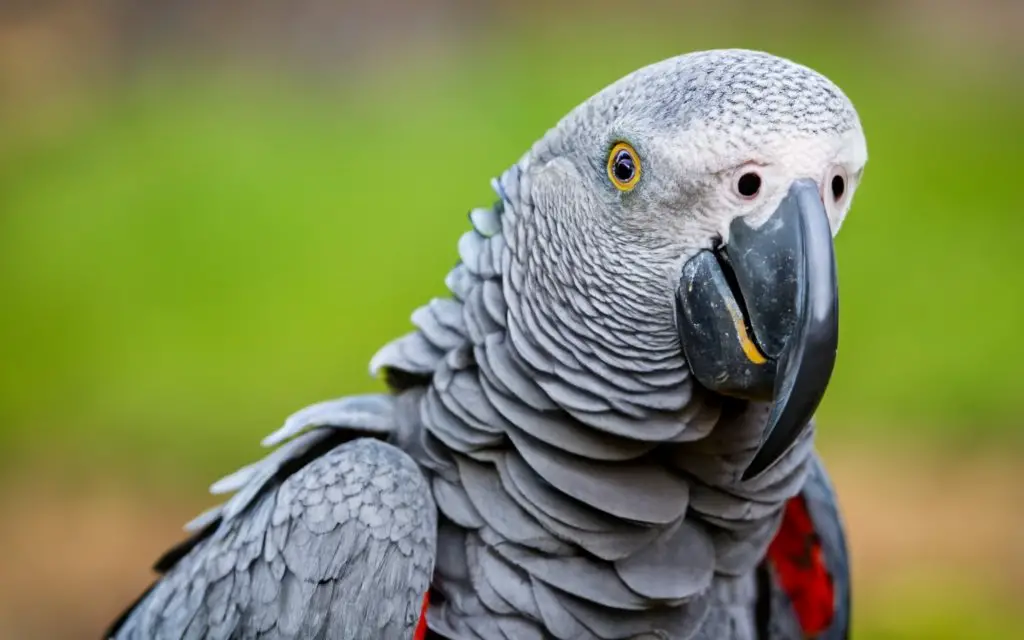
Tips for Living with a Noisy African Grey Parrot
Living with a noisy African Grey Parrot can be challenging, but there are tips to help manage the noise and maintain a peaceful environment.
Establishing a Noise Management Routine
To establish a noise management routine with your African Grey Parrot, consistency is key.
Start by setting clear boundaries and rules regarding noise levels.
Establish quiet times during the day when your parrot is expected to be calm.
Use positive reinforcement and reward your parrot for good behavior.
Provide mental stimulation and enrichment activities to keep them engaged and occupied.
Additionally, consider using soundproofing techniques in your living space to minimize noise transmission.
Openly communicate with your neighbors about your parrot’s noise and work towards finding a mutually agreeable solution.
Soundproofing Techniques for Living Spaces
To minimize the noise level of an African Grey Parrot in your living space, there are a few soundproofing techniques you can try:
- Use Heavy Curtains or Drapes: These can help to absorb some of the sound and reduce its transmission into the room.
- Install Acoustic Panels: These sound-absorbing panels can be mounted on the walls to help dampen the noise.
- Seal Windows and Doors: Ensure that windows and doors are properly sealed to prevent sound from escaping or entering.
- Use Rugs or Carpets: Adding soft surfaces to the floor can help absorb sound and reduce echoes.
- Consider Soundproofing Materials: There are various materials available, such as soundproof wallpaper or foam panels, that can be applied to walls or ceilings to reduce noise.
- Create a Dedicated Bird Room: If possible, designate a separate room for your African Grey Parrot where you can implement soundproofing measures more effectively.
- Use White Noise Machines or Fans: These can help mask some of the bird’s vocalizations and create a more peaceful environment.
Remember, soundproofing techniques may not completely eliminate the noise, but they can certainly help minimize the impact on your living space and your neighbors.
Open Communication with Neighbors
Open communication with neighbors is essential when living with a noisy African Grey Parrot.
Talk to your neighbors about your parrot and the noise levels to set expectations.
Discuss potential solutions and compromises that can ensure a harmonious living environment for everyone.
Being open and understanding can go a long way in maintaining a positive relationship with your neighbors.
Frequently Asked Questions about African Grey Parrots and Noise Levels
Are all African Grey Parrots noisy?
No, not all African Grey Parrots are noisy.
While they are known for their vocalizations and ability to mimic sounds, individual parrots can vary in their noise levels.
Some may be more talkative and loud, while others may be quieter.
It depends on their personality and how they are raised and trained.
Can African Grey Parrots be trained to be quiet?
Yes, African Grey Parrots can be trained to be quiet.
It requires patience, consistency, and positive reinforcement.
Use behavior training techniques to redirect their vocalizations and reward them for quiet behavior.
Provide mental stimulation and engage in interactive activities to keep them occupied and less likely to be noisy.
How can I reduce the noise level of my African Grey Parrot?
To reduce the noise level of your African Grey Parrot, you can try the following strategies:
- Establish a noise management routine: Provide your parrot with a consistent daily schedule that includes periods of quiet time.
- Soundproof your living space: Use materials like acoustic panels or noise-canceling curtains to absorb or block out the sound.
- Provide mental stimulation: Engage your parrot in activities that keep them mentally and physically stimulated to prevent boredom-induced noise.
- Modify the environment: Create a comfortable and stimulating living environment for your parrot, including plenty of toys, perches, and hiding spots.
- Training and behavior modification: Work with a professional trainer to teach your parrot alternative behaviors or cue them to be quiet on command.
- Open communication with neighbors: Let your neighbors know about your efforts to reduce the noise and provide them with earplugs or soundproofing suggestions if needed.
Remember, each parrot is unique, and it might take some trial and error to find the strategies that work best for your African Grey.
Patience, consistency, and understanding will go a long way in managing their noise levels.
Final Verdict
African Grey parrots are indeed known for their vocalization and can be noisy pets. Their natural habitat, intelligence, and communication skills contribute to their vocal nature.
However, there are steps that can be taken to manage and reduce their noise levels, such as training, providing mental stimulation, and modifying their environment.
It is important to establish a noise management routine and open communication with neighbors to ensure a harmonious living environment. Overall, with proper care and attention, African Grey parrots can still make wonderful companions despite their tendency to be noisy.

